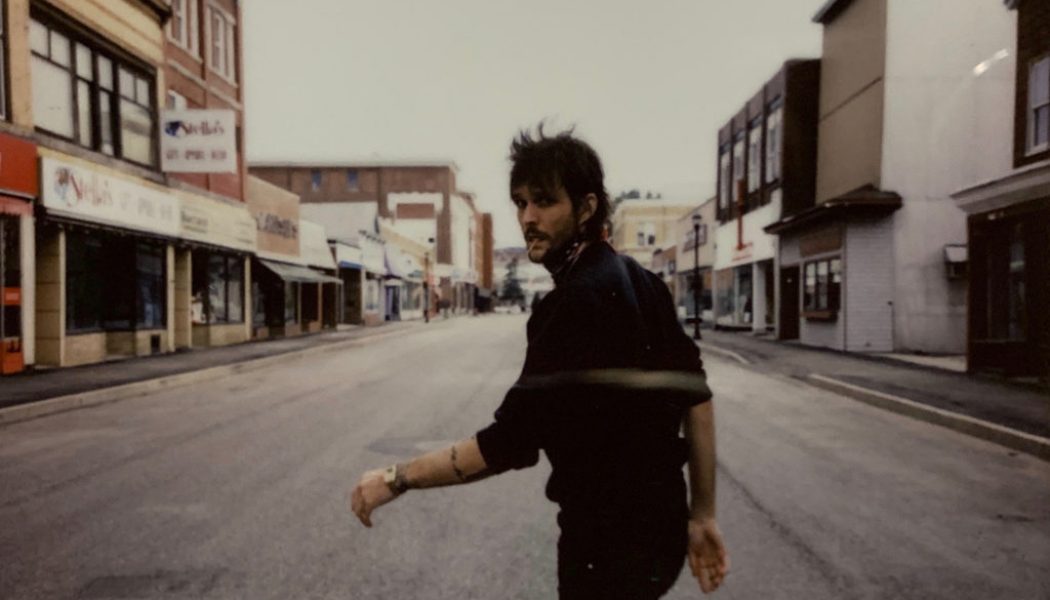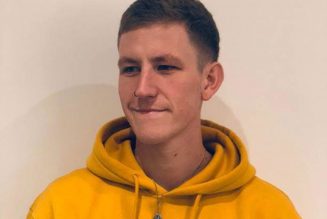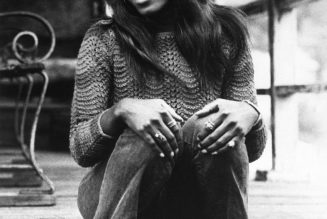
Martin Johnson has seen some shit within the music industry.
Before founding the synth-fueled project known as the Night Game a handful of years ago, he was the frontman of emo pop-rock act Boys Like Girls and wrote songs for everyone from Ariana Grande and Elle King to Gavin DeGraw and Avril Lavigne. He’s been signed and dropped by labels enough times that he eventually decided to just create his own, and he’s almost certainly written some of your favorite and least favorite songs. He also delved fully into the rockstar lifestyle and the substance abuse issues that come with it.
<!– // Brid Player Singles.
var _bp = _bp||[]; _bp.push({ “div”: “Brid_10143537”, “obj”: {“id”:”25115″,”width”:”480″,”height”:”270″,”playlist”:”10315″,”inviewBottomOffset”:”105px”} }); –>
But with the Night Game releasing their sophomore effort last Friday, Johnson finally found a way to break free from the noise and stress of the industry. Dog Years released on the songwriter’s Real Johnson Records as a series of 11 singles, all culminating in the self-produced album’s final unveiling. It also happens to mark the latest transition in the life of the theater kid-turned-rock star-turned DIY artist who’s now found a new home in Nashville.
SPIN caught up with Johnson to discuss the new album his improved outlook on life, and his experience as a pop songwriting machine.
SPIN: What was different about Dog Years compared to some of the other albums you’ve worked on in the past?
Martin Johnson: With this one, it was just kind of like there were no rules. When you’re writing the first record that you ever put out, it’s like you have your whole life to do it, and there are no rules because you’re like 16. But after you’ve been in the music industry for a while, you start to get these feelings inside your gut that say you have to be the person everyone thinks you are, so you take these detours along the way and you start ending up writing music for maintenance. You’re like “I have this mortgage now, and I should probably figure out how to pay it,” so you’re writing music for maintenance. But this one didn’t feel like that. This Night Game project really kind of felt like it was just for me to do something that I believed in. It’s a direct line into how I’m feeling musically. I try to create a world with the Night Game stuff. Whether it be sonically or lyrically, I try to create a little bit of an alternate universe in a world that you can access by checking out a video or listening to the music. It’s like a big birthing for me, and I’ve been ready to get it out.
And obviously this album sounds very different from the first Night Game album. How similar or different were they to make?
With the first record, I was coming off of Boys Like Girls, and I was worried to show my face because I didn’t want this stigma of always being “the emo guy” being attached to it. I was nervous. I was quoted back then saying “I made this project because I wanted to do something. I don’t care about what people think,” but really, I probably cared more what people thought about that first record than anything I’ve ever made. I re-produced “American Nights” four times because I just needed it to be perfect. I felt like perfection was unachievable, and I was just afraid of being put in a musical box. That first record got dropped from both Columbia and Interscope — it couldn’t have had a harder ride. So with this one, I knew I was doing it on my own and didn’t want to answer to anybody. I really just wanted to make this record with my friends and make something cool. I was really precious on the first record. I didn’t want there to be any sounds at all that weren’t made with analog things — like I wanted everything to be made with analog synths and stuff like that. This time, I just didn’t want to take myself too seriously, and it paid off. It’s like a pitbull holding on to a stick, where he just won’t let it go. What that pitbull wants isn’t really the stick. He just wants another throw. But he’s holding on to the stick as hard as he can because he’s afraid that he’s not going to get another throw. It was the same thing for me. I had to let that shit go.
Outside of the Night Game and Boys Like Girls, you’ve also written and produced for a ton of artists in all different genres. What’s that been like to work in so many different styles?
I’m just grateful that I have not one, but two of the songs that were included in some article about the worst songs of the 2000s so far. You can keep your Grammy, I just want to be on that. But no, I grew up doing musical theater, so I grew up playing characters and I think I still access different pieces of my personality for those kinds of character studies. I find it really interesting that when I’m creating music for myself, it’s a lot more limiting because it’s important that I tell the truth. At the core, I’m just a storyteller who usually writes songs in major keys with large flamboyant chorus melodies or whatever. But it’s funny to me because I have a really good friend who’s super successful, and he always tells me “Man, I learned really early that I just got to stick in my lane so people know what I do.” I’ve done the complete opposite, maybe to a fault. People don’t really know what I do, but it’s been fun. Not putting myself into a box has probably eliminated some jobs because people never know whether or not I’m the guy to call, but it’s definitely going to make for a good obituary.
It seems like you’ve really changed your perspective on your career and the industry recently. What’s gone into turning your mindset around in that regard?
It’s funny, because I lived so long where I was always chasing something, whereas now I’m just having fun. It used to be like “It’ll be OK when I have this” or “It’ll be okay when I have that,” but what do you do when you get it? You just select more stuff. I didn’t know who I was outside of the music stuff for a really long time. I didn’t know where the skinny pants ended and I began. I think more than ever, this last couple years — and even just making this record — has been a pretty nice journey into figuring out like “Here I am professionally. Here’s what I like to make for art. And now I’m going to detach from the results because it doesn’t define me.” It’s not the only thing that validates me in the system or who I am as a man. I like to spend time outside. I love skiing and downhill mountain biking, and I don’t drink anymore. So now I fill the giant cocaine-sized hole inside of me with that stuff. It used to be drugs, but now it’s extreme sports and jumping off of cliffs and doing stuff that fulfills my soul. That’s pretty cool for me.










